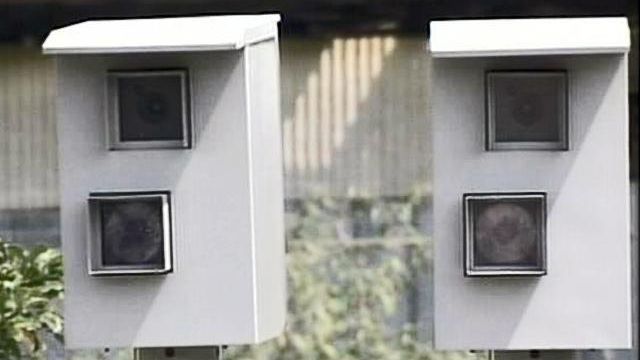Traffic
Mayor Wants to Know if Red-Light Cameras Cut Accidents
Raleigh's mayor wants to know whether red-light cameras are reducing the number of serious accidents in the city and if the school system is benefiting from fines they generate.
Posted — UpdatedRALEIGH, N.C. — Mayor Charles Meeker on Tuesday called for a report on the effectiveness of the city's 13 red-light cameras in reducing crashes and on how much money local schools get from traffic fines the cameras generate.\
"Red-light cameras actually work pretty well, in regard to enforcement," Meeker said. "So, there hasn't been a lot of dispute about that."
He said that what he wants to know is whether they are reducing the number of serious crashes, specifically side crashes in which a driver pulls into an intersection and either hits another vehicle or is hit by one.
"If the cameras aren't really reducing the accidents, particularly the serious ones, there really is no point in having them in place," Meeker said.
A North Carolina State University Institute of Transportation Research and Education study released in February 2005 found that side crashes had decreased at the 12 Raleigh intersections that had cameras at the time. It also showed a 7 percent increase in rear-end collisions, however.
City leaders have said in the past that an increase in rear-end collisions was expected because people began to make stops they were supposed to make but had not been making before.
"I'm very confident that we can show the council, once again, that these intersections with their lights and cameras, are working," Raleigh City Manager Russell Allen said.
Meeker also wants to know whether the city is providing revenue generated from the red-light cameras to the Wake County Public School System. Last year, the school system received more than $117,000 from several municipalities but none from Raleigh.
Advocates for the red-light cameras said they were never pitched as a money-maker for the school system, but as more of a safety device. Revenue generated from the cameras goes first to paying the company that operates them and for city costs involved.
Allen, however, said the city does expect to send some money to the schools in coming weeks, but an exact amount was still unclear.
The Board of Education has said it believes the school system is owed money under a State Court of Appeals ruling that said High Point could not use the fines to pay for its operating costs. The state Supreme Court recently declined to review that ruling.
As the law stands for Wake County, 90 percent of profits, after operating costs, go back to schools.
• Credits
Copyright 2024 by Capitol Broadcasting Company. All rights reserved. This material may not be published, broadcast, rewritten or redistributed.






